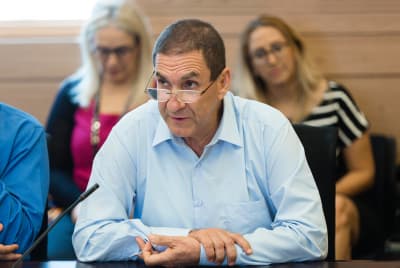Israel-Gaza War, Netanyahu, Politics
Netanyahu taps IDF generals for key roles in spite their checkered history
Netanyahu selects known critics to head critical operations.

In a move signaling a potential shift in Israel's strategic approach, Prime Minister Benjamin Netanyahu has appointed two retired military generals to oversee operations in the country's northern and southern regions. The announcement, made during yesterday's (Sunday's) cabinet meeting, comes as Israel continues to grapple with security challenges on multiple fronts.
As reported by JPost, former Ground Forces commander Major General (res.) Yiftach Ron-Tal will take on the role of coordinator for the South, while former Israel Navy commander Major General (res.) Eliezer 'Cheney' Marom will assume responsibility for the North.
Although both appointees bring extensive military experience to their new positions, their appointments have been met with mixed reactions. The "Fighting for the North" headquarters, a group advocating for residents of northern Israel, welcomed Marom's appointment, calling for an "extensive campaign in the North" that would establish a security strip in Lebanon under "absolute Israeli control."
Additionally, the selection process has not been without controversy. Reports surfaced last week suggesting that Netanyahu's previous choice for the northern coordinator position was withdrawn after political maneuvering by Likud party members. This led to public criticism from within the government, including from Ministers Ofir Sofer and Yizhak Wasserlauf, who expressed concerns about politically motivated appointments.
The newly appointed coordinators have previously voiced strong opinions on Israel's current security situation. Ron-Tal, in a recent radio interview, stated that, "A government that will not transfer the war to the enemy's territory and remove the threat does not deserve to be the government of Israel." Marom has also been critical of the war's conduct, suggesting that "things could have been done much faster and differently."
Netanyahu might be trying to demonstrate a willingness to incorporate diverse perspectives in shaping Israel's security strategy, potentially deflecting accusations of political favoritism in these crucial roles.
These appointments come at a critical time for Israel, as the country continues to face tensions along its northern border with Lebanon and ongoing conflict in Gaza. The coordinators' roles are expected to be pivotal in addressing these regional challenges and shaping Israel's security posture in the months to come.